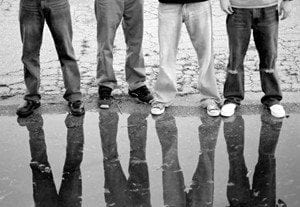Gangs and Funeral Service Rituals
 For most people, funerals are quiet and solemn affairs. They are a time to pay respects and lend comfort and support to the family members and friends of the deceased. They are a time to celebrate the life of the deceased and find closure and healing. However, for some people in cities like Chicago, New York, Los Angeles, and Vancouver, funerals have become a place for rival gangs to seek their revenge and perpetuate long-standing conflicts.
For most people, funerals are quiet and solemn affairs. They are a time to pay respects and lend comfort and support to the family members and friends of the deceased. They are a time to celebrate the life of the deceased and find closure and healing. However, for some people in cities like Chicago, New York, Los Angeles, and Vancouver, funerals have become a place for rival gangs to seek their revenge and perpetuate long-standing conflicts.
It is a painful irony that funerals can promote violence and instill fear in family members and friends attending services.
Gang Funeral Traditions
Aside from the presence of peace protestors and police officers, gang funerals follow the traditions of the deceased’s religious or cultural affiliations. Whether they are AME (African Methodist Episcopal) or New Orleans Jazz funerals, the specifics are left up to the family and the deceased’s wishes. In some cases, families, friends, and members of the community seize the opportunity of the funeral to plead with gang members to stop the violence and promote peace in the streets.
Police Protection a Common Sight
Take the funeral of Stanley Tookie Williams, for example. In 2005, in South Central LA, mourners came together to celebrate and honor the life of Williams. A former gang leader, Williams had since become known as an activist for peace. Outside the church, cops stood watch in riot gear for four hours while the funeral service took place.
Rival gang members often seek retribution or threaten violence against family and friends at funerals. Sometimes it is simply a way that gangs can intimidate each other. At other times, violence erupts, and things turn very ugly.
In 1990, five people were shot in Linden, N.J. Men posing as funeral mourners ditched their floral bouquets and fired machine guns and a shotgun into a crowd of 100 people. At the time of the shootings, police speculated that the violence was a result of tensions between rival New York City gangs. Panic broke out at the sound of gunfire, and several of the mourners in attendance were injured.
Because of the risks associated with gang violence, funerals of gang members are likely to be avoided by members of the community out of fear.
In Vancouver, constables work to notify individuals of known threats against their lives. Police are obligated to warn citizens when they find credible evidence that their lives are in danger.

